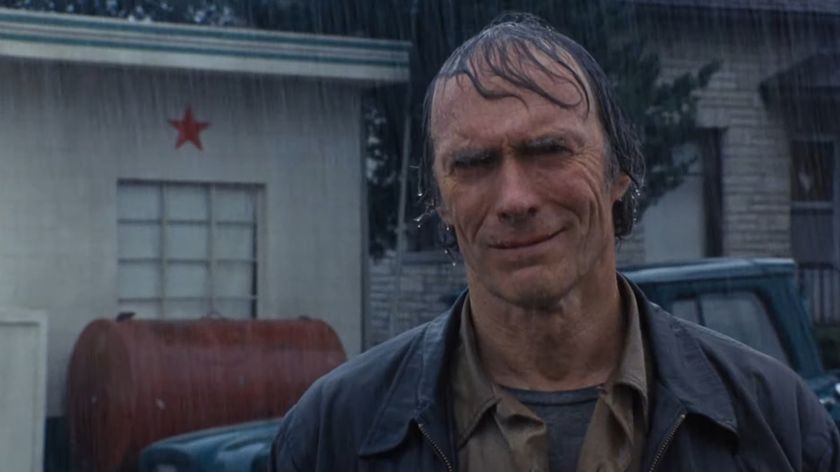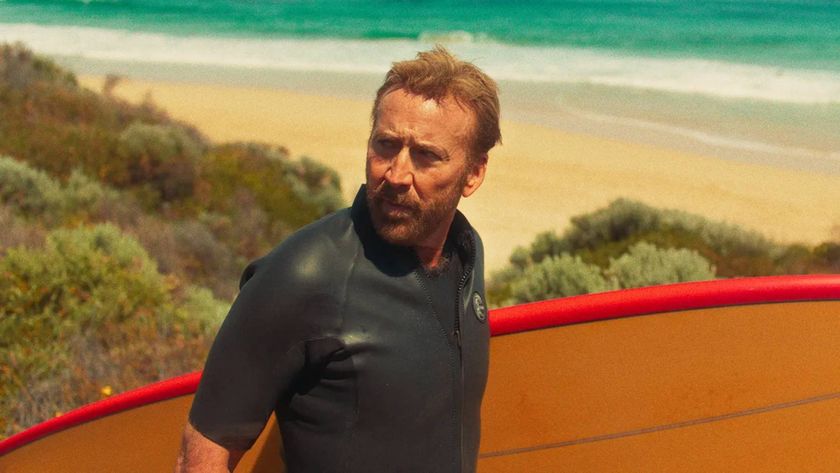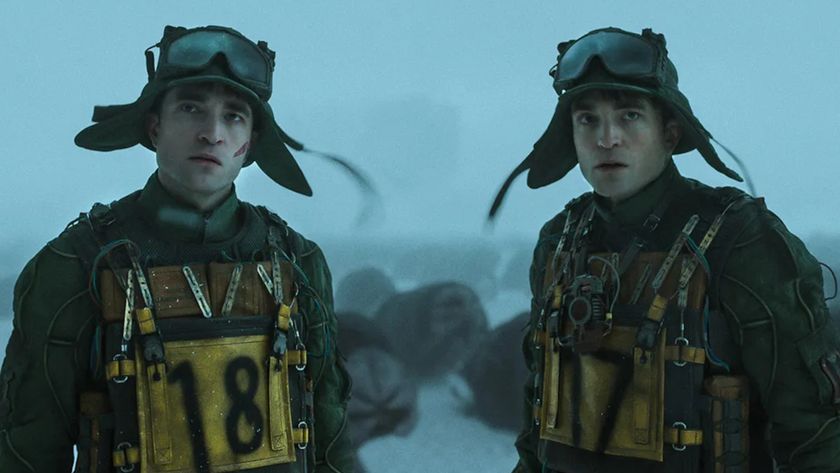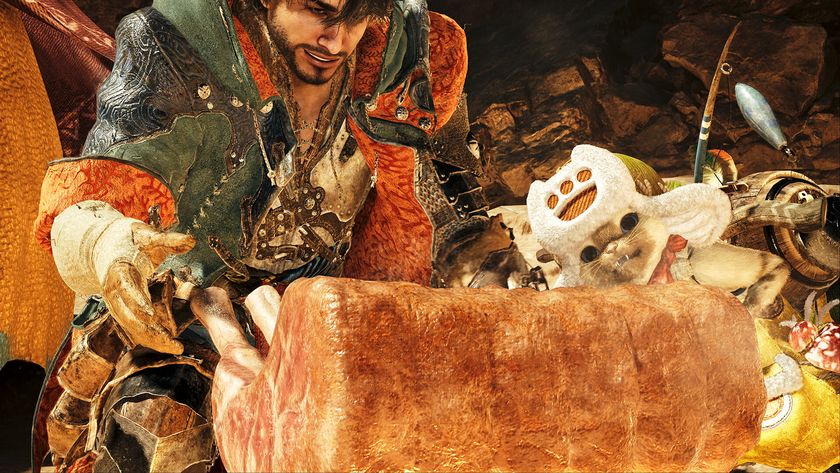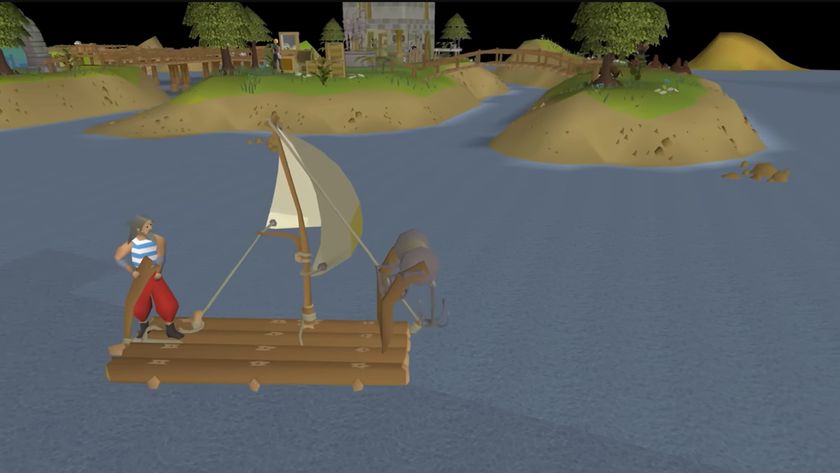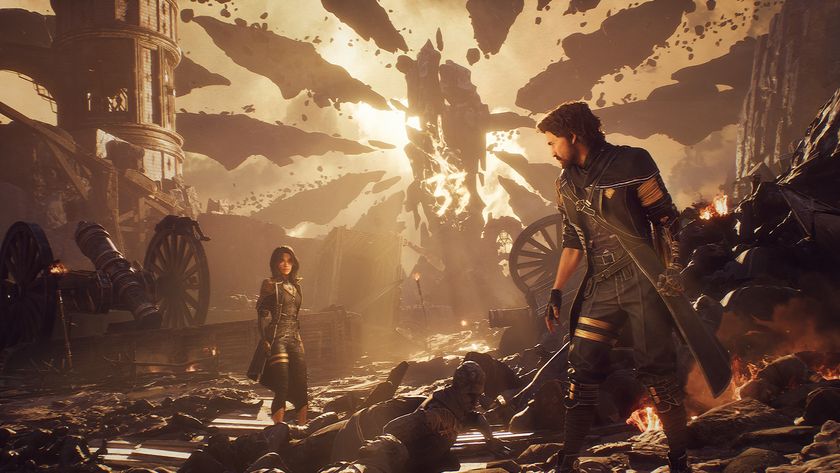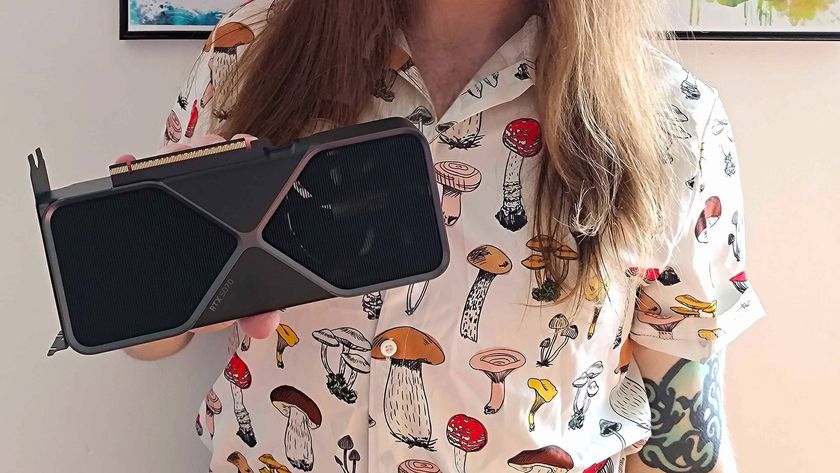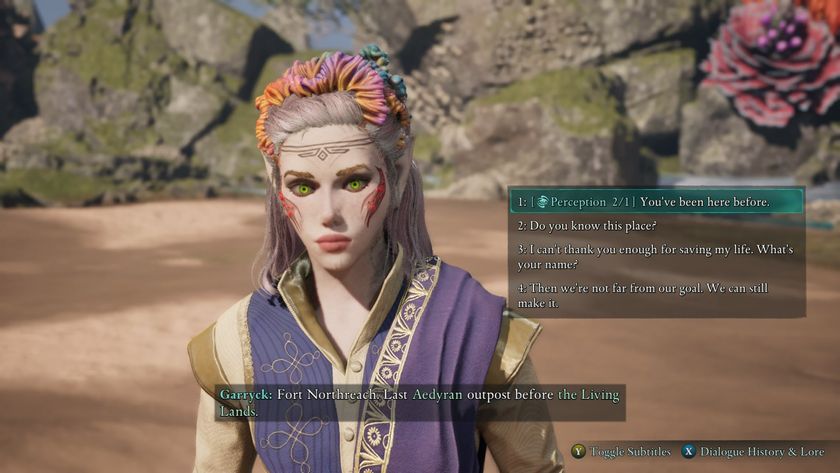From Gone Girl gaffer to Oscar winner: In conversation with David Fincher's cinematographer Erik Messerschmidt
EXCLUSIVE: We speak to the award-winning cinematographer ahead of the release of Fincher’s new Netflix thriller The Killer
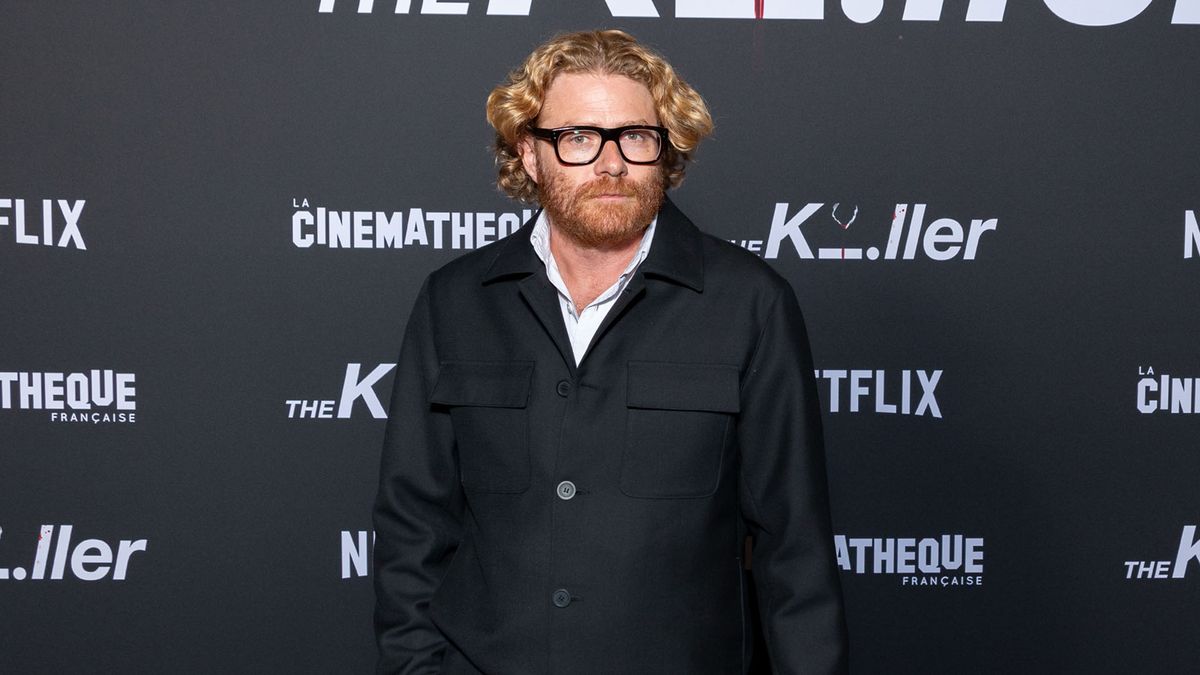
As we begin to discuss his prolific career and latest film The Killer, Erik Messerschmidt admits that he’s surprised to be here. After working on several commercials and television shows, Messerschmidt ended up on the set of director David Fincher’s hit film Gone Girl, working as a gaffer – for those who don’t know, that roughly means chief lighting technician. The duo bonded, with Fincher then recruiting him as director of photography on several of his projects, including beloved TV series Mindhunter and biographical drama Mank, for which Messerschmidt won the Academy Award for Best Cinematography.
Going from gaffer to Oscar-winning cinematographer in such a short period of time is quite the impressive career trajectory, and is something Messerschmidt confesses he wasn’t chasing, telling 12DOVE in our interview: "It wasn’t at all – it was never my goal, really. I was happy as a gaffer, and while I did want to be a cinematographer it felt far away and wasn’t something I was pursuing. But on Gone Girl, I had never experienced a director with such skill before and I fell in love with it. I just thought 'God, if I can just keep making movies with this person I’d be so thrilled.' The care and attention David [Fincher] gives to everything is infectious."
An eye for detail
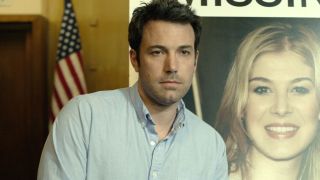
As Messerschmidt mentions, Fincher has an incredible eye for detail, which is something he has become known for over the years. He famously asks his actors to perform numerous takes to ensure perfection, and props, such as John Doe’s notebooks in Se7en, are meticulously crafted by hand. Plus, who can forget that for his masterful thriller Zodiac, Fincher actually flew in two massive oak trees via helicopter to recreate a crime scene when he realized the originals were gone.
Whilst Messerschmidt agrees that Fincher’s detailed approach is unparalleled, he does feel that the director’s somewhat notorious reputation is unreasonable, explaining: "His reputation is that he’s a very controlling, detailed person and I think that’s terribly unfair. He is the most collaborative person I know and very interested in surrounding himself with people who bring something to the conversation. I find my time with David to be the most gratifying professional experience I’ve ever had. He expects everyone to be working at a high level, but that’s enjoyable as I leave the set satisfied that I gave it all that I possibly could."
His reputation is that he’s a very controlling, detailed person and I think that’s terribly unfair
Although he describes Fincher there as "collaborative," Messerschmidt admits that the director can also be "intimidating," especially on set. Over the course of their decade-long partnership, the cinematographer has therefore had to learn that not only is it okay to speak his mind, but this is actually something Fincher encourages: "He can be an intimidating person to be around, for sure, and I told myself from the beginning to speak up if you disagree, but you have to pick your moments. I am more comfortable now in speaking my mind, but I also believe it’s a cinematographer’s job to conform to what the director responds to – you are trying to execute their vision. Luckily, we have enough shared sensibilities, which makes that easy – we walk onto a location, stand in the same place, look at each other, and nod. You don’t get that too often."
Stick to the plan
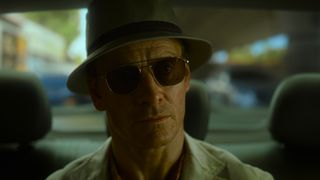
Messerschmidt did, however, have to question Fincher upon receiving the script for their latest film The Killer, which releases in cinemas this week ahead of hitting Netflix in November. Based on the French graphic novel series of the same name, the film stars Michael Fassbender as our nameless protagonist, an assassin who, after a fateful near-miss, goes on an international manhunt he continually insists to himself isn’t personal. It’s certainly a unique film, with Fassbender’s hitman reciting his internal monologue to us throughout: "Stick to the plan, Anticipate, don’t improvise. Fight only the battle you’re paid to fight. Trust no one."
At first, the screenplay puzzled Messerschmidt, who rang the director immediately for a response: "To be honest with you, I was confused. It’s so short and there’s so little dialogue. I had to call him as I needed help understanding what we were doing here. He sent me this film called Le Samouraï [the 1967 crime thriller from director Jean-Pierre Melville] to watch and told me this is a film about someone’s process, being an objective ghost in the room. This is someone who never allows anyone to be close to them, but suddenly you are there – what does that feel like? I think sometimes we are looking for the bigger picture, the themes, but with this film you can take it as being about all sorts and just go for it – capitalism, nihilism, humanity, etc. There’s room for all of that! But, for me, it was all about how you bring the audience to a place they are not used to being, close to this assassin."
Sign up for the Total Film Newsletter
Bringing all the latest movie news, features, and reviews to your inbox
Going in for the kill
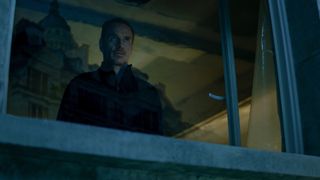
It’s no surprise, really, that Fincher encouraged Messerschmidt to watch Le Samouraï as that movie was a huge inspiration for writer Alexis Nolent, AKA Matz, who penned the comic book The Killer is adapted from. During his preparation, the cinematographer also read that graphic novel, and even though he doesn’t understand any French, it did heavily influence his approach to the film. In fact, he was surprised at the similarities he uncovered between cinema and graphic novels, admitting he was new to the world of comic books. He explains: "I read it in French and I don’t speak French. But it was interesting, because I learned with graphic novels you don’t necessarily need the dialogue, and our film has so little dialogue too. Historically, I’m not a comic book person, I’ve never really been attracted to it, so I didn’t realize until then how similar they are to cinema in terms of structure and visual storytelling. It made me think a lot about composition and framing. We weren’t making Sin City, so it didn’t have to look like a comic, but we did use similar techniques when looking at where to put the camera, how close, etc."
Historically, I’m not a comic book person, I’ve never really been attracted to it, so I didn’t realise until then how similar they are to cinema in terms of structure and visual storytelling
It certainly had an impact with The Killer being visually distinctive, and as Messerchmidt notes above, the lack of dialogue also makes it unusual and striking. This was something he was particularly drawn to, being excited at the prospect that the camera would really have to do the talking, even more so than normal. "I was attracted to that, as we ended up having to tell so much with the camera – although. actually, with Michael Fassbender, he also says a lot with his face alone. He’s incredible. All of my initial conversations with David weren’t about style, but instead pace and scene structure, although that’s usually the case. We have a more nuts-and-bolts approach discussing how we are going to tell the story with the camera, then the style is born from that. We were always talking about point of view – when do we see what Fassbender’s killer sees and when do we watch him instead? How does that affect the interpretation of the scene? One of the beautiful things about cinema is that you can move the audience around the room, unlike with theater. I love that – suddenly you can go wide after being in someone’s head. With other filmmakers, you just follow the action but with Fincher, we don’t do that – there’s more of a focus on those decisions."
TV vs. cinema
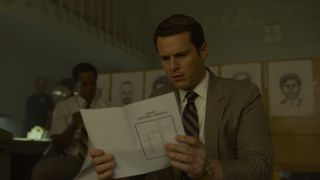
Thankfully for Messerschmidt, he has worked with the best directors in the industry, from Fincher to the legendary Ridley Scott. Having collaborated together on sci-fi show Raised by Wolves, he is reuniting with Scott on upcoming TV series Sinking Spring which is set to premiere on Apple TV Plus in the future. Despite there still being some snobbery within the industry towards television, Messerschmidt enjoys this work, telling us that he likes how it presents different challenges compared to making a feature film: "They are different mediums, but I don’t believe one is worse or better than the other at this point. Some of the best work being done right now is in television – period. Maybe 15 years ago there was an argument for that, but not anymore. I don’t approach it differently, even though the authorship is often different. Like on Mindhunter, there were many directors associated with the project who all brought something. A TV series will therefore vary because of that in the way a film generally doesn’t, as it’s one vision – but that’s not bad at all, it’s just different. And from a storytelling standpoint, a series gives an enormous opportunity to tell something detailed and nuanced that you don’t have the time to tell in 110 minutes."
Some of the best work being done right now is in television – period. Maybe 15 years ago there was an argument for that, but not anymore
In addition to Scott and Fincher, Messerschmidt has also recently ticked another great auteur off his bucket list – the one and only Michael Mann. He teamed up with the legendary Heat director on the upcoming biopic Ferrari, which stars Adam Driver as the founder of the car manufacturer, charting his professional and personal struggles. For Messerschmidt, it was an incredible experience, especially since Mann wanted to do everything for real as much as possible: "That was amazing! We did that film for real – in Italy, driving real cars on real roads. Michael is an incredibly visceral filmmaker and brings that to everything, looking for the drama in each moment. He’s a very different director to David, but it was an extraordinary experience and not one you get very often." Who knows, though? Whilst Messerschmidt says it’s a rare experience, maybe Mann will give him a call for his eagerly awaited Heat sequel. We’ll keep our fingers crossed!
The Killer is released in selected theaters on October 27, before hitting Netflix on November 10. Ferrari, meanwhile, will race into US theaters on December 25 and UK cinemas the following day, December 26.
For more of what to look forward to, check out our list of the most exciting upcoming movies for 2023 and beyond.

As Entertainment Editor at GamesRadar, I oversee all the online content for Total Film and SFX magazine. Previously I've worked for the BBC, Zavvi, UNILAD, Yahoo, Digital Spy and more.
